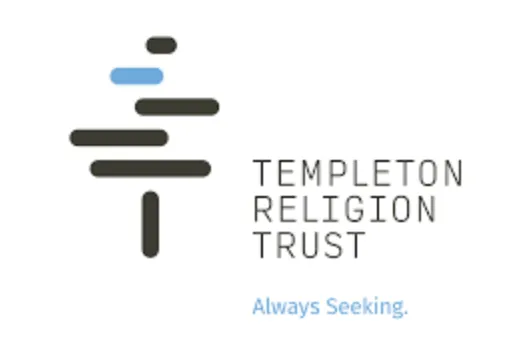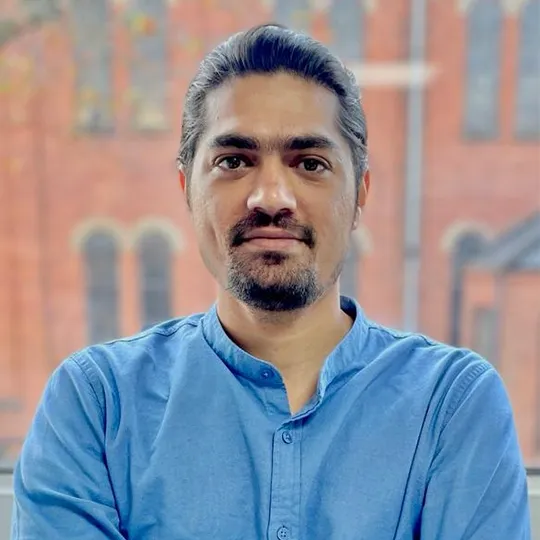Social Consequences of Religion (SCORE) Religion & Peacebuilding
Are religions part of the problem or part of the solution? What do we really know about the social consequences of religions, and what more can we learn about them?
Funded by the Templeton Religion Trust (TRT), the SCORE Religion & Peacebuilding Research Strand is poised to be a multi-decade effort to research and analyse the profound impact of religious beliefs, behaviours and institutions on a series of crucial domains of human life. This initiative is organised into convergent research strands, beginning with Religion and Cooperation, Religion and Peacebuilding, Religion and Development.
The SCORE Religion & Peacebuilding Research Strand is led by Dr Stacey Gutkowski, an expert in religion and Peace and Conflict Studies at the Department of War Studies, King’s College London, and one of the original directors of the Centre for the Study of Divided Societies, an initiative established in 2009 to provide a global focal point for teaching and research on ethno-national problems that divide and unite societies across the modern world.
Academic Advisory Board
Aims
SCORE's investigation into the types and impacts of faith-related peace initiatives is guided by these objectives:
- Deepen the research base, including thorough attention to questions of causality.
- Consider directions for better synthesis of existing research.
- Expand methodological innovation and integration among adjacent fields and academic disciplines.
- Prioritise research into peacebuilding efforts that offer potential improvements to the lives of people in post-war societies.
Projects include researching how best to weigh the social consequences of religious faith, practice, institutions, and ideas in post-war environments. A related consideration is how to account for their interaction with other social, economic, and political dynamics as well as how people who have lived through war see the effects.
Methods
The Review Phase (2023-2025) of this research strand which commenced in October 2023 is made up of two pieces of research which seek to provide a landscape of the existing literature and actor configurations within the subject area of Religion & Peacebuilding. The first piece of research is made up of systematic literature reviews of the existing qualitative and quantitative research on religion and peacebuilding and relevant adjacent literature. The second piece involves mapping the landscape of practitioners engaged in matters of religion and peacebuilding, including those engaged at the grassroots. The goal is to identify a core group of Leading Practitioners who can be engaged with the work of Strand 2 over the course of 10 years, to identify promising pathways to dissemination among peacebuilding practitioners, and to help assess the appropriate format for the New Research Phase, particularly to assess the viability of fieldwork research involving interdisciplinary research teams in case study contexts. Both research dimensions will be guided by punctuated consultations with an Academic Advisory Board made up of leading academics and practitioners.
In the New Research Phase of this strand (years 3-7), which is set to commence in 2026, we will complete and build on the conclusions of the Review Phase to develop and launch an effort to conduct new research. Although the design of this study is still in development, the research throughout this phase will seek to generate novel field or comparative studies to explore and understand when, where, and why religious faith and practice has positive or negative effects in different contexts.
Finally, in the Dissemination Phase (years 8-10), which is set to commence in 2030, we will seek to disseminate the results of the Strand 2 Research Phase among academic and non-academic audiences, for the express purpose of improving people’s lives in post-war contexts. We envision that this phase will consolidate and transmit the results of the research to key practitioner stakeholders, with a long-term view to catalyzing a generational shift in how religious ideas and institutions are or are not incorporated into the peacemaking, peacebuilding and peace consolidation phases of post-war environments.
Summary of Findings
This multi-million-dollar investment represents the first coordinated effort to robustly synthesise the empirical research on the social consequences of religion and produce a repository of data on the various interconnected impacts and influences of religion in society.
The Religion & Peacebuilding strand represents an original attempt to consolidate the contributions of religious actors on the processes involved in effective peacebuilding in the existing literature and to offer new scientific knowledge for groups such as donors and grassroots peacebuilders, hoping to inform, positively shape and hopefully make more effective their future interventions in post-conflict societies.
Our Partners






